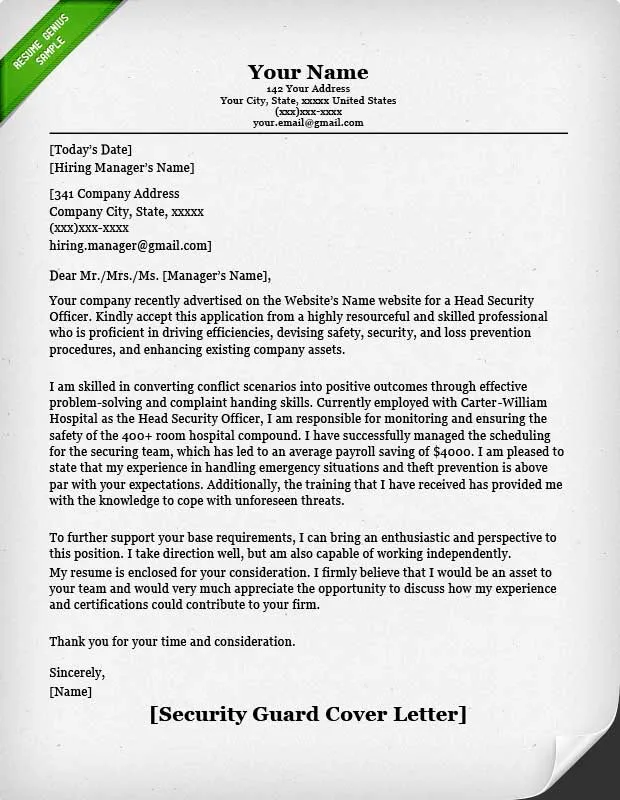Top 5 Tips for a Winning Security Guard Cover Letter
A well-crafted security guard cover letter is your first step towards landing your dream job. It’s your opportunity to make a strong impression and highlight why you’re the ideal candidate. Your resume provides the facts, but your cover letter allows you to show your personality and connect with the hiring manager on a deeper level. This article breaks down the top 5 tips to help you create a cover letter that stands out and secures you an interview. Remember, the goal is to not just list your qualifications but to demonstrate how you can contribute to the security needs of the company. Your cover letter is a crucial tool in showcasing your professionalism, attention to detail, and commitment to safety and security. Let’s dive into the essential components to make your application shine.
Highlighting Relevant Skills
Your cover letter should prominently feature your key skills. Think beyond the basic requirements and tailor your skills to the specific needs outlined in the job description. If the job posting emphasizes surveillance, make sure to mention your proficiency with security cameras and monitoring systems. If the role involves access control, highlight your experience with managing entry points, verifying credentials, and dealing with potential security breaches. Don’t just list your skills, give examples of how you’ve used them effectively in the past. This demonstrates your capabilities and showcases your potential value to the employer. Use strong action verbs to illustrate your contributions. For example, instead of saying ‘Responsible for patrols,’ say ‘Conducted regular patrols, identifying and reporting potential security risks.’ This approach makes your skills more tangible and memorable.
Detailing Experience Effectively
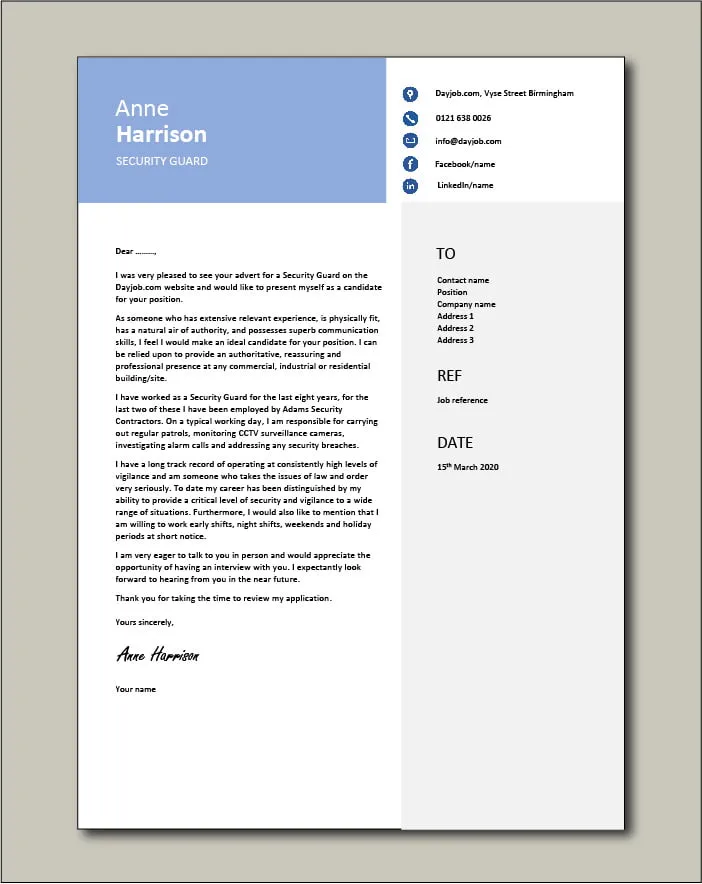
Experience is a crucial element in any security guard cover letter. Provide specific details about your previous roles, responsibilities, and accomplishments. Instead of just stating you were a security guard at a previous company, explain what you did. For instance, describe any incidents you handled, security protocols you enforced, and any improvements you made to security procedures. The more specific you are, the better. Be sure to include the name of the company and the period of employment. If you have any experience in specialized security environments like retail, hospitals, or government facilities, be sure to include it. Highlight any commendations or awards you received for your performance. This provides proof of your reliability and dedication to maintaining a secure environment. Use numbers to quantify your achievements whenever possible, such as the number of incidents you resolved or the percentage reduction in security breaches under your watch.
Tailoring to the Specific Job
Generic cover letters rarely make a lasting impression. The most effective letters are customized to each job application. Carefully read the job description and identify the specific requirements and priorities. Then, adjust your cover letter to address these points directly. If the company emphasizes customer service, highlight your experience in interacting with the public and resolving conflicts. If the role involves working in a specific industry, such as healthcare or finance, showcase any relevant knowledge or training you have in that field. Research the company’s values, mission, and security needs. Demonstrate that you understand their specific requirements and explain how your skills and experience align with them. This level of personalization shows that you’ve taken the time to understand the role and are genuinely interested in the position.
Showcasing Certifications and Training
Security guard positions often require specific certifications and training. Make sure to list all relevant certifications, such as those related to first aid, CPR, and firearms. Include the issuing organization and the date of certification. If you’ve completed specialized training in areas like loss prevention, de-escalation techniques, or emergency response, highlight those as well. These certifications and training programs demonstrate your commitment to professional development and your ability to handle various security situations. If you are currently enrolled in a security-related course or planning to obtain any additional certifications, be sure to mention this. It shows that you are committed to continuous improvement. Listing these credentials builds credibility and shows you meet the requirements of the job.
Emphasizing Soft Skills
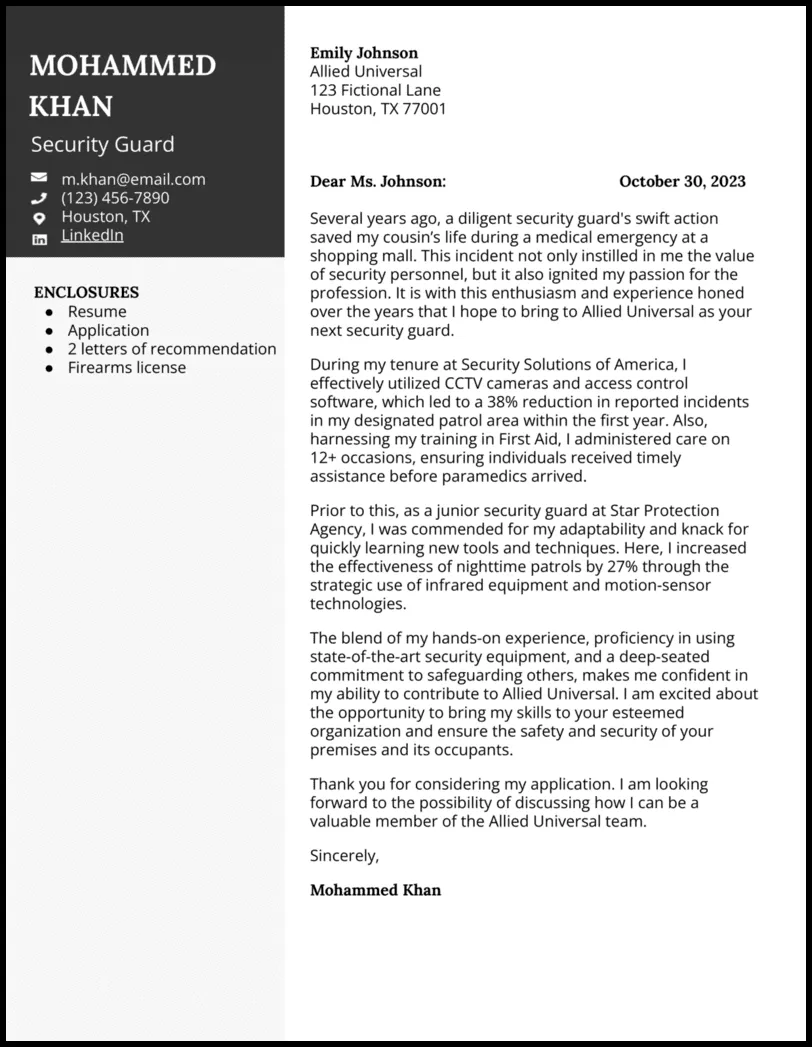
While technical skills are important, don’t overlook the value of soft skills in your cover letter. Security guard roles require excellent communication, problem-solving, and critical thinking abilities. Highlight your interpersonal skills, such as your ability to interact with people from diverse backgrounds. Emphasize your ability to remain calm under pressure, make quick decisions, and work effectively as part of a team. Include examples of situations where you used these skills to resolve conflicts, de-escalate situations, or assist others. Mention your attention to detail and your ability to follow protocols and procedures. Show that you are dependable, reliable, and able to handle sensitive information with discretion. These soft skills make you a well-rounded candidate and highlight your capacity to be an asset to the team.
Crafting a Compelling Opening
The opening of your cover letter is critical to capturing the hiring manager’s attention. It sets the tone for the rest of your application. A strong opening statement should clearly state the position you’re applying for and briefly highlight your most relevant qualifications. Avoid generic phrases like ‘I am writing to express my interest.’ Instead, start with a compelling statement that grabs the reader’s attention. This could include a brief summary of your most impressive accomplishment or a statement about why you’re excited about the opportunity. Show your knowledge of the company. This shows that you’ve done your research and are genuinely interested in the role. The aim is to immediately demonstrate why you are a good fit for the position and encourage the reader to continue reading.
Why the First Impression Matters
The first impression you make can significantly impact the hiring manager’s perception of you. An impressive opening makes the reader want to learn more about your skills and experience. If your opening is weak or generic, it may be overlooked. Your opening should make a positive impact. It is your chance to differentiate yourself from other applicants. Consider this section as your sales pitch. It is your chance to sell yourself in the best possible way to show the employer your best qualities. Make sure your opening is clear and concise.
Grabbing the Reader’s Attention
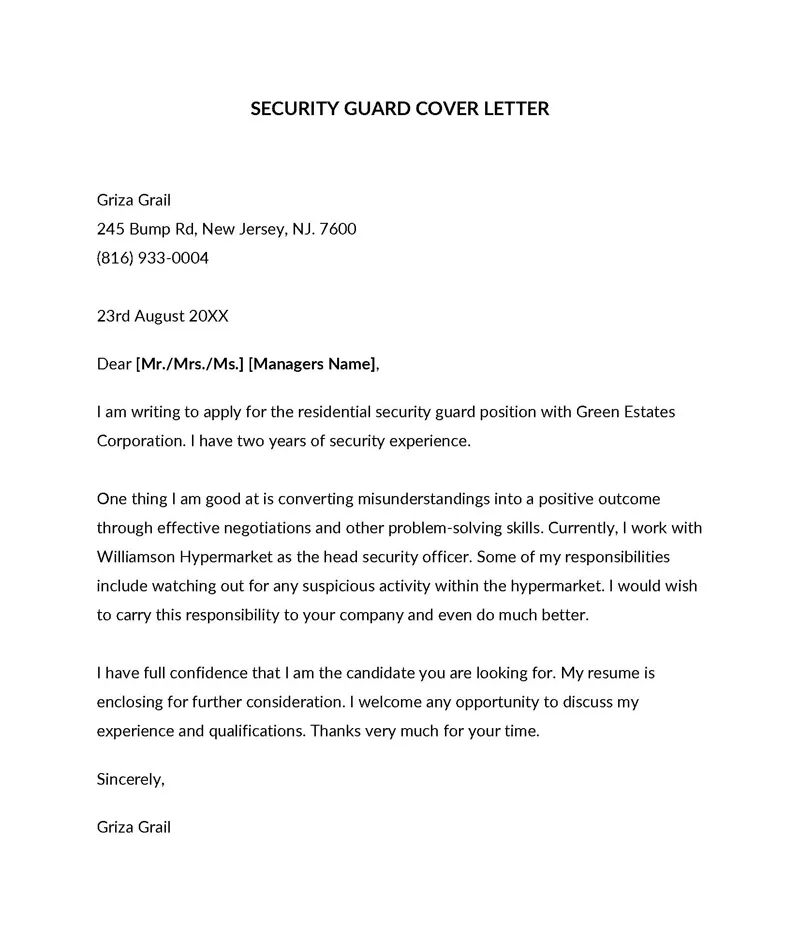
The goal of your opening is to immediately engage the reader. Instead of simply stating your intent to apply, begin with a statement that showcases your value. You can start with an achievement. This will help you stand out immediately. If the job posting emphasizes a specific skill, mention your proficiency with it. This approach demonstrates that you’re a strong candidate. You can also express your enthusiasm for the company or the role. This shows genuine interest and can resonate with the hiring manager. By making your opening compelling, you increase the chances of the hiring manager continuing to read your cover letter.
Stating Your Objective Clearly
Your cover letter should state the position you are applying for. Avoid vague language and ensure that you are specifically applying for a security guard position, if that’s what the job posting specifies. Avoid using generic objective statements. Instead, use clear language. Make it easy for the hiring manager to know which position you are interested in. You can briefly mention what you bring to the position. This makes it clear you understand the role’s requirements and are confident in your ability to perform. This clarity helps ensure that your application gets the attention it deserves.
Structuring the Body of Your Letter
The body of your cover letter is the core of your application. This is where you elaborate on your skills, experience, and qualifications. To make it easy to read, organize your letter into clear paragraphs with concise headings. Use a professional font and appropriate formatting to improve readability. Use bullet points and lists to highlight key information and make it easier for the reader to scan your letter. The key to a good body is to match the job requirements with your skills, the goal is to provide concrete examples of your qualifications, and to demonstrate your knowledge of the company.
Using the STAR Method
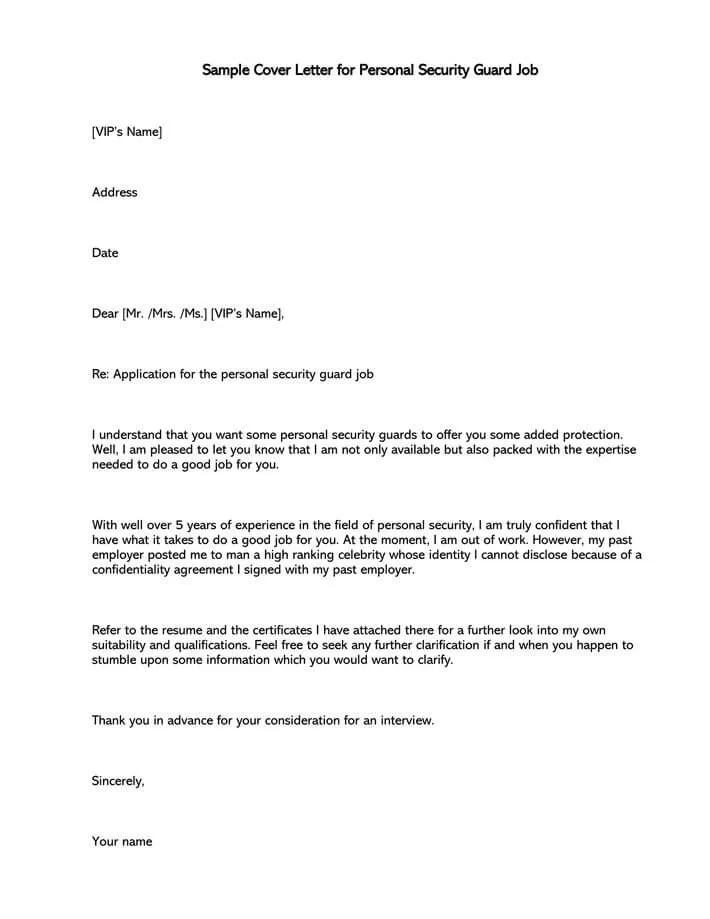
The STAR method is an effective way to structure your responses when describing your experience and achievements. STAR stands for Situation, Task, Action, and Result. This method helps you provide a clear and concise narrative of your experience. In the Situation phase, set the context. Describe the situation. Next, explain your Task. Identify what you needed to do in that situation. After that, outline the Action that you took. Detail the steps you took to address the situation. Lastly, describe the Result. Show the outcome of your actions. Using the STAR method makes your cover letter more effective, and it makes it easier to describe your experiences in a way that the hiring manager will understand.
Quantifying Achievements
Whenever possible, use numbers to quantify your achievements. This helps demonstrate the impact you’ve made in previous roles. When describing your experience, use specific numbers. You might describe the number of security breaches you prevented or the percentage reduction in incidents under your watch. You can describe the number of people you have supervised or the number of hours you have worked. This gives a clear picture of your capabilities. This adds credibility to your claims. It shows the hiring manager the value you can bring to their company. Quantifiable details make your application much more compelling.
Maintaining Professionalism
Maintaining professionalism throughout your cover letter is essential. This means using professional language, a formal tone, and correct grammar and punctuation. Your cover letter is a reflection of your work ethic. Use a professional font, such as Times New Roman or Arial, and use appropriate formatting. Use spell-check and proofread your letter. Pay attention to the layout. Be sure to maintain a consistent format to present your professionalism. Proofread it carefully before sending.
Concluding with a Strong Call to Action
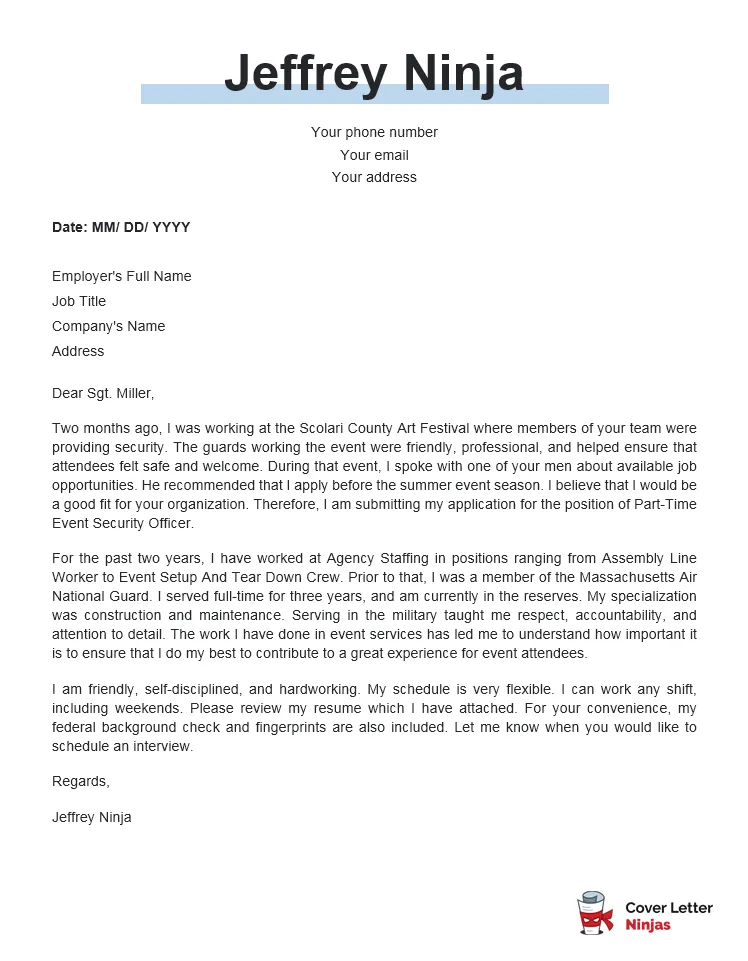
Your cover letter should conclude with a strong call to action. The call to action is your chance to express your interest in the position and encourage the hiring manager to contact you. Instead of simply ending your letter with a generic closing statement, make it clear you want to be interviewed. In the call to action, express your enthusiasm for the position. Reiterate your interest in the role. Include a clear statement about your availability for an interview and your contact information. This gives the hiring manager a clear path to follow. This shows that you’re proactive and eager to move forward in the hiring process.
Expressing Enthusiasm
Expressing enthusiasm is important. Show the hiring manager that you are genuinely interested in the position. Mention anything specific that you admire about the company or the role. This shows that you’ve done your research and are genuinely interested. You can mention how your skills and experience align with the company’s values. This level of enthusiasm can have a positive impact on your application. It signals your commitment to the role and the company’s success. Enthusiasm will help you stand out.
Providing Contact Information
Make sure your contact information is easy to find and includes your phone number and email. Verify your contact details. Double check that the email address you provide is professional. Be sure to include your phone number. The hiring manager needs to be able to reach you quickly. Ensuring your contact information is accurate is a simple step that can save you from missing an opportunity. Verify that the details are current and correct. It can also be a sign of your attention to detail and professionalism.
Proofreading and Editing
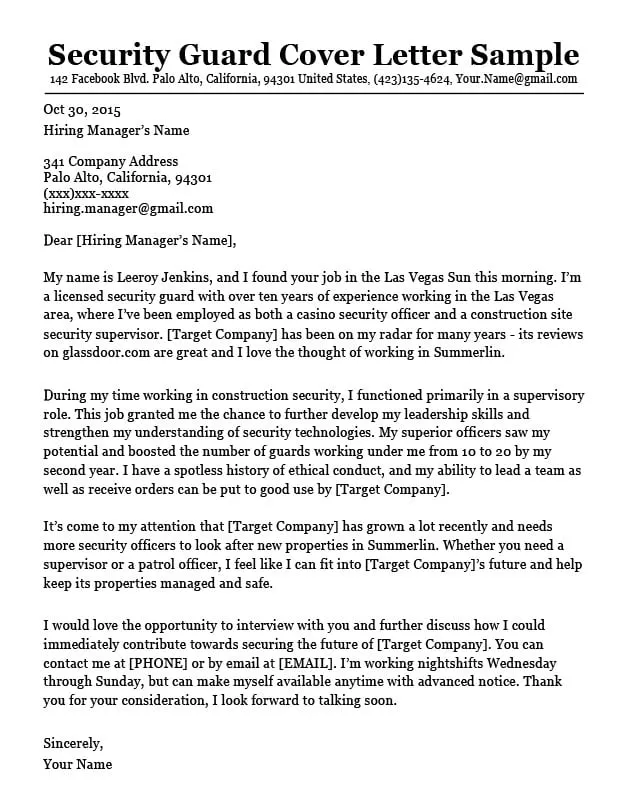
Before submitting your cover letter, proofread and edit it carefully. Errors in grammar or punctuation can create a negative impression. Proofread your cover letter for any mistakes. You can also ask a friend, colleague, or family member to review your letter. They can help catch mistakes that you might have missed. Ensure your cover letter is clear and concise. If you’re applying online, check the company’s application instructions. Follow the instructions carefully. By proofreading and editing, you are demonstrating your attention to detail.
